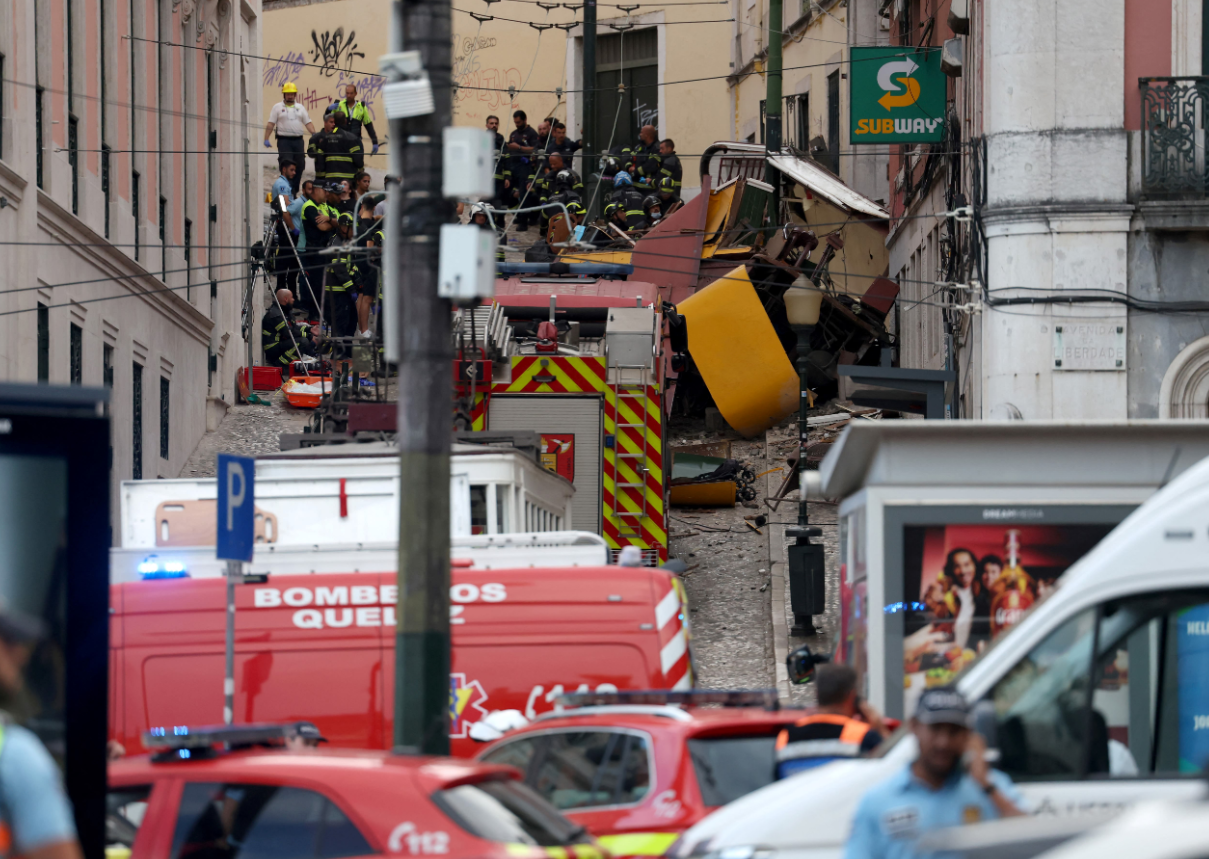Lisbon Funicular Derailment: Two South Koreans Confirmed Dead, Embassy Providing Support
A tragic funicular derailment in Lisbon, Portugal has claimed the lives of at least 16 people, including two South Korean citizens, according to Portuguese prosecutors on September 4 (local time). The accident occurred on the iconic Glória Line connecting Restauradores Square to the Bairro Alto viewpoint, a popular attraction used by more than 3.5 million people annually. South Korea’s embassy in Lisbon confirmed the fatalities and is providing consular support on-site.

Casualties and Victim Identification
Portuguese prosecutors confirmed the identities of eight victims so far: five Portuguese nationals, two South Koreans, and one Swiss national. In addition, one South Korean is among the injured. Authorities are still working to identify other victims, with preliminary reports suggesting possible fatalities from Canada, Germany, the United States, and Ukraine.
Prime Minister Luís Montenegro stated that 16 people were confirmed dead and more than 20 others injured, with at least five in critical condition. Earlier reports had cited 17 fatalities before the number was revised. Injured victims include nationals from Portugal, Germany, Spain, South Korea, Cape Verde, Canada, Italy, France, Switzerland, and Morocco.
Embassy and Government Response
The South Korean Embassy in Portugal confirmed its assistance: “We are closely cooperating with local authorities, visiting the site, and providing consular support to our nationals.” The Portuguese government has declared a national day of mourning and described the incident as one of the greatest tragedies in the country’s recent history. Flowers, vigils, and memorial services were held near the accident site and local churches.
Investigation Into the Accident
Portugal’s Air and Rail Accident Investigation Agency has begun analyzing the wreckage and is expected to release a preliminary report within days. Police said initial findings will be available within 45 days. Possible causes being considered include brake failure or cable damage during the uphill and downhill operations of the funicular.
Pedro Bogas, CEO of the operating company Carris, stated in a press conference that the funicular underwent a complete maintenance program last year and daily visual inspections were conducted. He insisted no defects had been detected and said the number of passengers onboard did not exceed the funicular’s maximum capacity of 42.
Impact and Global Reaction
The accident has sparked international concern given Lisbon’s status as a major tourist hub. Prime Minister Montenegro described the tragedy as “a disaster that crosses borders.” With foreign nationals among the victims, governments and embassies worldwide are monitoring developments closely and providing support to affected families.
Public reaction in Lisbon has been marked by grief and solidarity, with residents and tourists alike leaving flowers at the scene and participating in memorial masses held in nearby churches.
🔎 Key Summary
- Lisbon funicular derailment kills 16, including two South Koreans
- At least 20 injured, with five in critical condition
- Victims include nationals from Portugal, South Korea, Switzerland, Canada, Germany, and others
- South Korean Embassy providing consular assistance
- Investigation underway; causes may involve brake or cable failure
- Portugal declares a national day of mourning
FAQ: Lisbon Funicular Accident
1. Where did the accident occur?
On the Glória Line funicular in central Lisbon, connecting Restauradores Square to the Bairro Alto viewpoint.
2. How many South Koreans were affected?
Two South Koreans died, and one was injured. The South Korean Embassy is assisting victims’ families.
3. What is the confirmed death toll?
16 confirmed dead, with several others injured. Authorities are still identifying some victims.
4. What could have caused the derailment?
Investigators are examining possible brake system failures or damaged cables. A preliminary report is expected soon.
5. How is Portugal responding?
The government has declared a national day of mourning, and officials are working with international partners to support victims’ families.
Conclusion: A Tragedy That Crosses Borders
The Lisbon funicular derailment highlights the fragility of public transport safety in historic tourist cities. With victims from multiple countries, including two South Koreans, the tragedy underscores the importance of international cooperation in crisis response. As investigations proceed, the global community watches closely, remembering the victims and demanding answers to prevent such a disaster from happening again.
